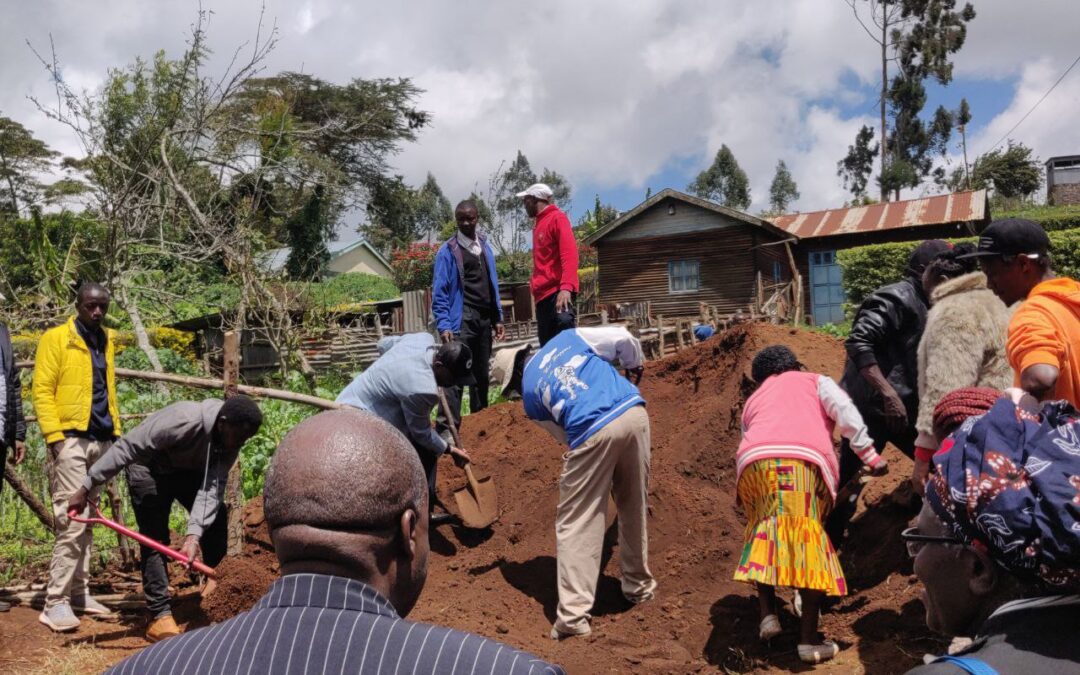The first thing to understand when laying down a comrade to rest is that a comrade never rests. They give up the ghost. They kufa. They chew. But they don’t rest.
And a comrade is never buried when the sun is at high noon. No. It has to rain. Because rain is the tears of the gods as they leak happiness for a comrade has joined them for a thousand academic days.
Mercy is placed under insufficient supply when a comrade is being buried, and any poison above 1,000 Kenyattan dollars is considered flamboyance. Comrades ignore the impending drought and kata maji, imbibing the cheapest keroros to massage the comrades’ spirit—the second most potent spirit after the Holy Spirit.
It is pandemonium when a comrade is promoted to glory, the comrade’s girlfriend is placed under 24/hr surveillance—in case she elects to join mwendazake—because what could be stronger than love? Murder, she wrote.
The villagers are made puny by the backdrop of stoicism in the face of the comrades, which loom like colossi and then by the event itself. It’s a kamikaze mission. A comrade’s death is a cenotaph, buried deep in the unmarked graves of our hearts.
Like Jesus, a comrade does not die. A comrade is transfigured, and his spirit lives on in mwakenyas and pirating and exiles; a comrade’s girlfriends are inherited immediately after the last mound of mud is thrown, because power abhors a vacuum, and this is in the spirit of Ubuntu, the third most powerful spirit after the Holy Spirit and the comrades’ spirit.
Comrades do not cry more than the bereaved, comrades do not cry, comrades “cry on the inside.” It’s impossible to see a comrade’s tears, it’s like writing about Kikuyu food in a tasteful way.
Never ask what killed the comrade because a comrade cannot be killed. How can you kill that which you cannot capture? How can you kill a spirit? Instead, a comrade passes, for a comrade never fails.
It doesn’t matter that the village may lack electricity—comrades’ power will shock the lights into obeisance; comrades united in Engineering 101 short-circuiting Kenya Power, the third most powerful power after Paka Power and Comrades’ Power.
The burial will be live streamed on TikTok, where yellow yellow girls with the flat belly of an African Python, and the snakey habits of an African Python will be screaming “Almighrrryy Gaaawwdd” as they type “Yaani Kevo kufad just like that? Aki death wewe! This is not giving.”…and finish with the expression #dead.
Sadness will descend akin to the holy spirit on the apostles as the departed comrade takes residence in his murram maisonette, escorted by fellow Bachelors; for a fisherman is buried by fellow fishermen, a thief by trusty thieves, a comrade by the camaraderie of comrades. The enduring emotion of death, when everything else has faded, is comradeship. A comrade is a man you can trust with anything, because you trust him with your life. “It is,” Philip Caputo wrote in A Rumor of War “unlike marriage, a bond that cannot be broken by a word, by boredom or divorce, or by anything other than death.”
Comrade power! Comrades aktchuuu! Comrades tialala! These chants are Lavender air freshener after a long dump, and must be honoured, for if not a comrade will refuse to rot.
That evening, while singing kumbaya my Lord, comrades will stop at the nearest watering den to replenish the tears, they will shika for each other kaquarter, or kanuthu, or mzinga; the only spirit that lives peacefully with the demons in a comrade—cheap mzingas, for it’s a grave situation because the cost of living is high—potent makali, the fourth most powerful spirit after the Holy Spirit, the Comrade’s Spirit, and the Ubuntu Spirit.
That night, no comrade goes to sleep. For what is sleep but the cousin of death?






